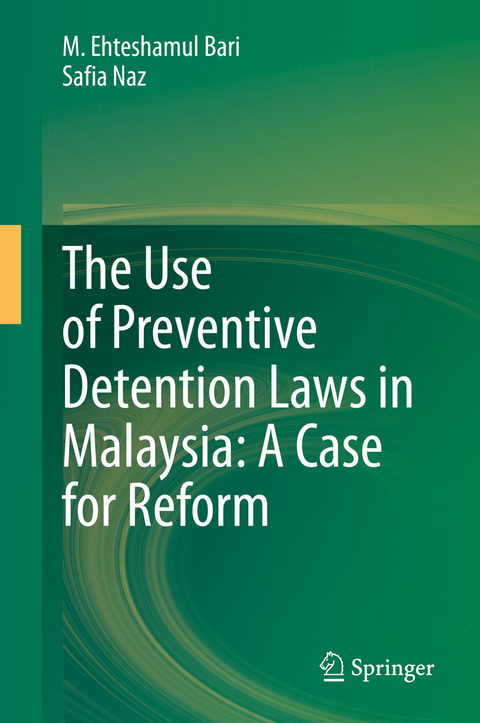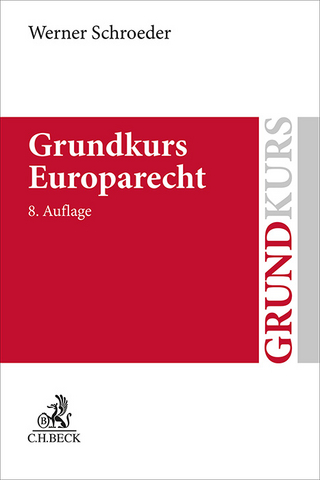
The Use of Preventive Detention Laws in Malaysia: A Case for Reform
Springer Verlag, Singapore
978-981-15-5810-8 (ISBN)
Against the above background, this book sheds light on the fact that Article 149 of the Federal Constitution of Malaysia empowers the Parliament to enact preventive detention laws authorizing the executive branch of government to preventively detain individuals without the precondition of an emergency. Furthermore, the Constitution does not stipulate adequate safeguards for mitigating the harshness of preventive detention laws.
This book makes it manifestly evident thatthe weaknesses of the constitutional provisions concerning preventive detention have enabled succeeding generations of executives in Malaysia to not only enact a series of preventive detention statues for arrogating to themselves wide powers concerning preventive detention but also to rely on them for arbitrarily detaining their political adversaries.
Consequently, on the basis of this analysis, this book puts forward concrete recommendations for insertion in the Constitution detailed norms providing for legal limits on the wide power of the executive concerning preventive detention. The insertion of such norms would ensure the maintenance of a delicate balance between protecting national interests and, simultaneously, observing respect for an individual’s right to protection from arbitrary deprivation of liberty.This book is useful for academics and students of comparative constitutional law, human rights and Asian law. The extensivelaw reform analysis undertaken in this book also greatly benefits the policy makers in Malaysia and the policy makers of constitutional polities facing similar problems with the issue of circumscribing the scope of the powers concerning preventive detention.
Dr M. Ehteshamul Bari is a Senior Lecturer and the Higher Degree Research Coordinator in the Thomas More Law School at the Australian Catholic University, Melbourne. Dr Bari’s research expertise lies in the areas of constitutional law, human rights law and Asian law. He has published extensively in these areas in reputed peer reviewed journals, such as the Wisconsin International Law Journal, George Washington International Law Review, Transnational Law and Contemporary Problems, Suffolk Transnational Law Review and Oxford University Commonwealth Law Journal. Dr Bari is also the author of the monograph, titled “States of Emergency and the Law: The Experience of Bangladesh” (London: Routledge, 2017). He has received prestigious awards in recognition of his scholarship. Safia Naz is a PhD scholar in the Durham Law School at Durham University. Her research interests are in the areas of constitutional law and human rights law. She has published research articles in theseareas in quality peer-reviewed journals, such as the Suffolk Transnational Law Review and Commonwealth Law Bulletin.
1. Introduction.- 2. General Issues Concerning the Power of Preventive Detention and the Evaluation of this Power under the Federal Constitution of Malaysia.- 3. The Quest for a Standard Preventive Detention Framework.- 4. Preventive Detention Laws in Malaysia & Their Use.- 5. Conclusions and Recommendations.
| Erscheinungsdatum | 10.09.2020 |
|---|---|
| Zusatzinfo | 1 Illustrations, black and white; XIII, 133 p. 1 illus. |
| Verlagsort | Singapore |
| Sprache | englisch |
| Maße | 155 x 235 mm |
| Themenwelt | Recht / Steuern ► EU / Internationales Recht |
| Recht / Steuern ► Öffentliches Recht | |
| Sozialwissenschaften ► Politik / Verwaltung | |
| Sozialwissenschaften ► Soziologie | |
| ISBN-10 | 981-15-5810-8 / 9811558108 |
| ISBN-13 | 978-981-15-5810-8 / 9789811558108 |
| Zustand | Neuware |
| Haben Sie eine Frage zum Produkt? |
aus dem Bereich


